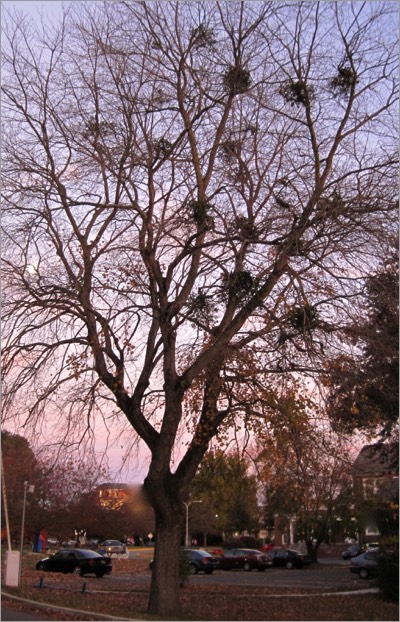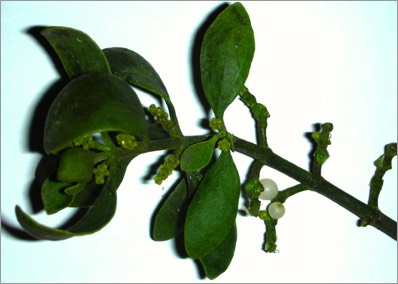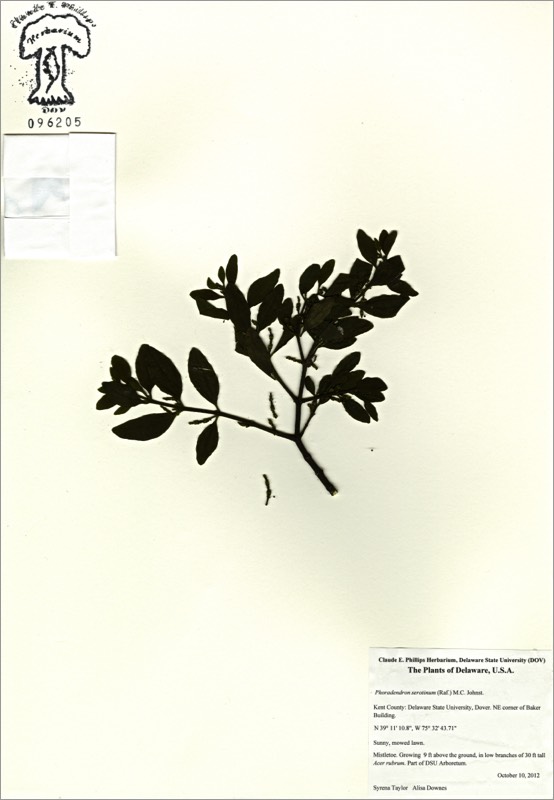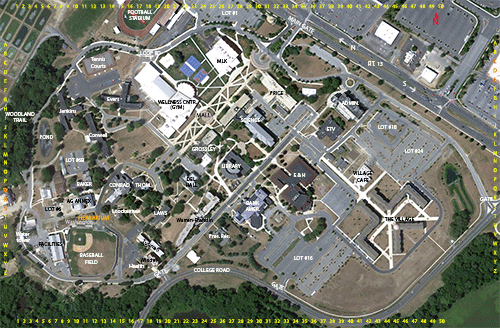Mistletoe


Stem with leaves and fruits collected from another tree.
Phoradendron serotinum
MISTLETOE
Viscaceae
E. North America
Location: map coordinates N-12 (northeast of Baker Building, on limbs of red maple tree (Acer rubrum), N 39°11'11'' W 75°32'43''
Planting history: “planted” naturally, most likely by birds (on tree limbs)
Description:
Native species, State Rank S4 (common, but not very common, in Delaware); on Delaware coastal plain
MISTLETOE
Viscaceae
E. North America
Location: map coordinates N-12 (northeast of Baker Building, on limbs of red maple tree (Acer rubrum), N 39°11'11'' W 75°32'43''
Planting history: “planted” naturally, most likely by birds (on tree limbs)
Description:
- evergreen shrub; parasitic on host tree
- etymology: Phoradendron means tree-thief; serotinum = developing late (refers to fruits which ripen in winter)
- formerly Phoradendron leucarpum (synonym; leucarpum means white fruit)
- common name “mistletoe” comes from Anglo-Saxon for “dung on a twig”
- forms a dense green cluster growing up on the branches of host trees; especially visible in winter
- hemi-parasite; obtains mainly water and mineral nutrients from host tree, but carries out photosynthesis to produce its own “food”. Hausteria (root-like structures) attach it to host tree
- dioecious (separate male and female plants)
- berries white; eaten by birds; sticky due to viscin coating known as “bird glue”; birds “plant” the seeds by wiping beaks on tree branches, and also in their droppings
- yuletide tradition of kissing under mistletoe dates back to winter solstice celebrations of ancient Britain (ca 300 AD); ancient Celtic priests used European mistletoe as a potion in fertility rites. Also used to ward off evil
- formerly used medicinally by Native Americans for epilepsy, headaches, oral contraceptive. Also used today in some countries as herbal remedy for cancer, and circulatory and respiratory problems. Warning: mistletoe is often considered to be poisonous (although usually not fatal)
- native range generally southern, from Florida and Texas north to New Jersey
- the only species of mistletoe in Delaware, where it seems to prefer red maple as its host tree
Native species, State Rank S4 (common, but not very common, in Delaware); on Delaware coastal plain


HIT REFRESH TO START LOCATION GRAPHIC